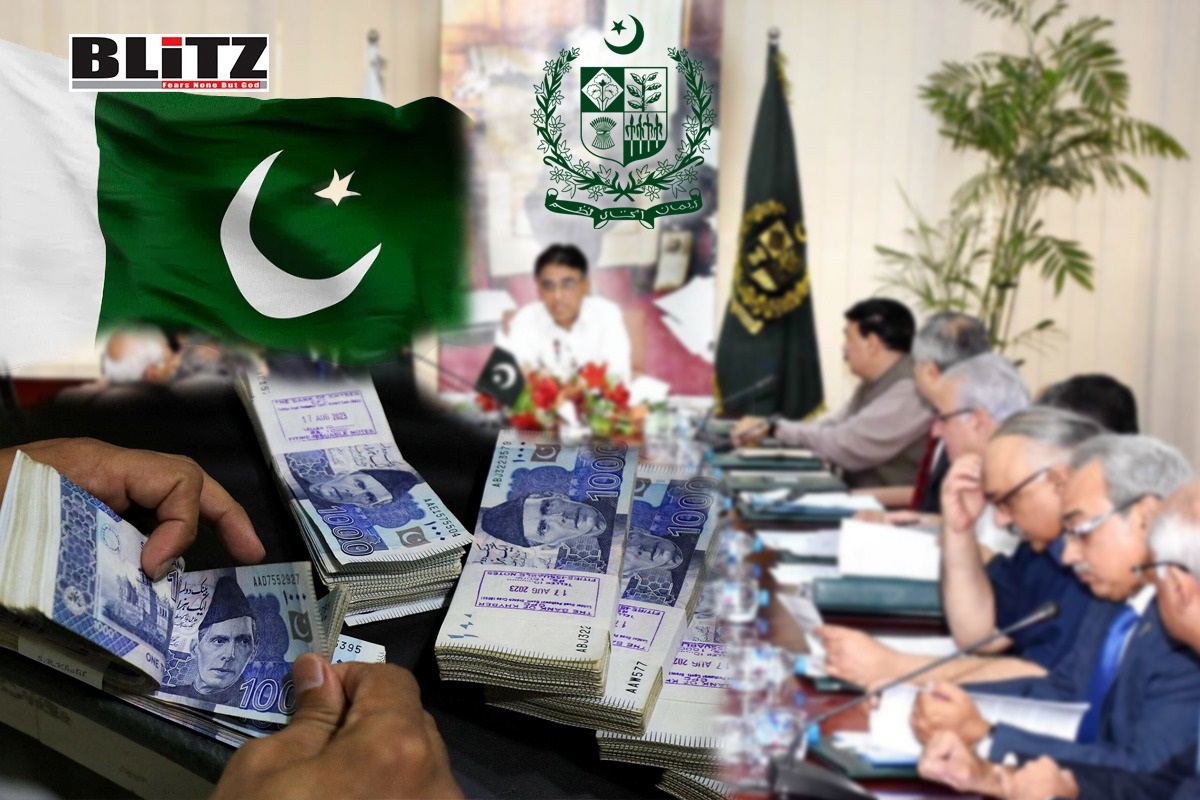Pakistan’s Economic Advisory Council represents vested interest groups
- Update Time : Friday, May 31, 2024

The recently Economic Advisory Council (EAC) has stirred controversy amongst financial circle of the country with economic pundits terming it to be a superfluous structure. Dominated by business tycoons and industrialists from Punjab, the Council lacks broad provincial representation and critical economic expertise. This move has also raised concerns about the Council’s ability to address Pakistan’s economic challenges, highlighting a pressing need for competent economic leadership in such precarious times.
However, the Council’s composition has been criticized for its lack of diversity and representation from all provinces and major economic sectors. Unlike previous councils, which had relatively broad representation, the current EAC is seen as closely aligned with the Prime Minister’s inner circle. The EAC headed by the Prime Minister himself, includes several prominent figures. Among the members of EAC there is Salman Ahmad, whose consultancy firm, McKenzie, recently secured a multimillion-dollar contract for advisory services for the digitization of the Federal Board of Revenue.
An important and controversial inclusion in the council is Jahangir Khan Tareen, the founder of the Istahkam-e-Pakistan Party. Tareen, who had retired from active public life after his defeat in the February 8 General Elections, has been brought back into the power corridors. His political journey began in 2002. He held various positions, including serving as a Minister with the portfolio of industries, production, and Special Initiatives. Despite his extensive political experience, Tareen’s inclusion has raised eyebrows due to his past disqualification by the Supreme Court for financial dishonesty.
Another notable member of the EAC is Saquib H. Shirazi, who is a prominent business leader and CEO of Atlas Honda Limited. H however lacks the specific economic expertise needed to navigate the complexities of Pakistan’s financial challenges. His background in the automotive industry does not equip him with the macroeconomic planning skills essentially needed to formulate comprehensive economic policies.; Dr. Ijaz Nabi, an economics professor and advisor; Asif Peer, CEO of Systems Limited with his background in Information Technology, while notable, does not align with the needs of economic strategy and fiscal policy. Ziad Bashir, a textile mill owner from Karachi, does not bring the necessary economic expertise to the table.
For example, Shahzad Saleem, Chairman of Nishat Chunian Group, is primarily known for his contributions to the textile and energy sectors. Although he has an impressive business acumen, his experience does not translate into the economic advisory domain. His inclusion appears to be more of a nod to industrial interests rather than a strategic move to enhance economic policymaking. Such appointments indicate a preference for business leaders with vested interests over individuals with robust economic planning capabilities. These selections also reflect a governmental approach that prioritizes big names and business ties over the essential requirement for qualified economic planners. This lack of foresight undermines the council’s potential to address Pakistan’s economic woes effectively.
Among the Council members, Musadaq Zulqarnain however stands out as a competent and innovative business leader. As the Chairman of Interloop Limited, he has demonstrated a commitment to business innovation and growth-oriented policies. Zulqarnain’s track record suggests that he could contribute valuable insights to the council. However, the same cannot be said for the rest of the members, whose backgrounds are primarily in industrial and business sectors rather than economics.
The Ministry of Finance has stated that the Council will meet with periodic frequency, and its terms of reference give it the leverage to discuss and recommend anything related to the economy. However, the lack of provincial and sectoral representation, coupled with the inclusion of individuals with close ties to the Prime Minister, only suggests that the Council may not provide the unbiased and comprehensive economic advice that Pakistan desperately needs.
Critics argue that appointing power-hungry individuals with vested business interests to the EAC will only exacerbate the country’s economic problems. These members, with properties abroad and no direct stake in the local economy, are unlikely to prioritize the general public’s interests. Instead, their decisions may be driven by their business agendas, undermining efforts to revive Pakistan’s economy.
The International Monetary Fund (IMF) has a significant influence over Pakistan’s economic decision-making, further complicating the council’s potential impact. The Finance Ministry’s recent violation of an Act of Parliament by not securing Federal Cabinet approval for the Budget Strategy Paper underscores the challenges facing the EAC. Without Cabinet and National Assembly backing, the Council’s contributions to the budget-making process, are likely to remain limited.
The Government’s failure to meet statutory deadlines for the Budget Strategy Paper highlights the need for a more competent and independent economic advisory body. The current EAC, with its politically aligned members, is unlikely to provide the robust economic guidance required for Pakistan’s economic revival. Instead, efforts should be focused on strengthening the Special Investment Facilitation Council (SIFC), a one-window outlet designed to attract and facilitate foreign direct investment (FDI) in Pakistan.
Since its inception, the SIFC has made significant strides in achieving its aims and has been highly successful in attracting FDI. The need of the hour is to bolster the SIFC through a whole-of-nation approach. Superfluous economic bodies, such as the current EAC, which are populated by less competent and more politically aligned individuals, should be curtailed. Instead, a council of macro and micro economists and technocrats should be established under the SIFC’s umbrella. It is time to strengthen SIFC incorporating all elements of national power in a synchronizing manner.
In a country like Pakistan, where economic revival is paramount, the Government’s decision to populate the EAC with individuals more closely tied to industrial interests rather than economic expertise is deeply concerning. This approach signifies a short-sighted strategy that overlooks the pressing need for robust economic planning and comprehensive policy formulation. By prioritizing big names and business affiliations, the government has missed a crucial opportunity to harness the skills of experienced economists and technocrats who could provide the much-needed strategic direction for economic recovery.















Leave a Reply